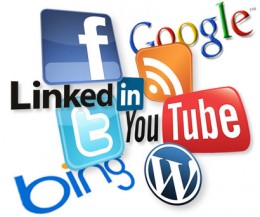The 21st century is the age of interconnectivity. The internet and increasing predominance of social media has brought everyone together in a more immediate and instant way than ever before. This brings the need for multilingualism. It is becoming increasingly difficult to make the connections you both want and need without speaking another language.
There are many reasons why language is important and beneficial to you. Here are just a few motivations to become multilingual:
Cultural Awareness

Different cultures will also have unique perspectives on everything from gift giving to house decoration. Again, Chinese culture can be quite different from what is found in North America.
Business Benefits

Chinese languages are becoming increasingly popular, and they are now being taught to children across North American schools. This new push is due to the emergence of China as an economic superpower, and parents are trying to give their kids an edge in the future world of business by making them multilingual.
It is not just younger generations learning new languages, there are many language programs for adults available to help you get ahead.
Keep up with Social Media
Learning another language will give you the benefit of being able to tweet, post, pin, blog, and more in multiple languages, which will in turn connect you to wider audience. It will also allow you to follow news and trends in languages other than your mother tongue so that you are more in tune with the world markets.

Health Benefits
That’s right, there are several health benefits assocaited with learning a new language and becoming multilingual.
Advantages for Children
Studies also show that learning a language as an infant is essential for later development. When babies learn languages, they not only learn to associate words with meanings, but can interpret intentions as well. This is a key predecessor to developing rational thought and analytical skills.

Delay Alzheimer’s
Scientists now have evidence that shows that bilingual people delay the onset of Alzheimer’s for an extra 4 years compared to monolingual people of the same age and health level. While speaking multiple languages won’t prevent you from getting Alzheimer’s, it can help you cope with it better and reduce the risk of senile dementia. The increased brain use requires of being multilingual builds up a “cognitive reserve” as Ellen Bialystock (psychologist at York University) calls it.
Better Brain Performance

Other Perks
There are an assortment of other perks to be gained from learning a new language. These can include, but are not limited to:
- Being perceived as more attractive
- Being more rational when speaking a foreign language
- Increased creativity
- Earning higher wages
- Better literacy
In order to fully gain all the benefits, it is necessary for you to be at least bilingual and to speak both languages frequently. However, even the process of learning a new language is a great way to boost cognitive abilities.




